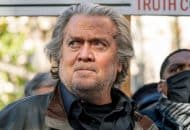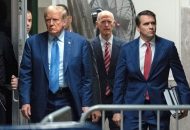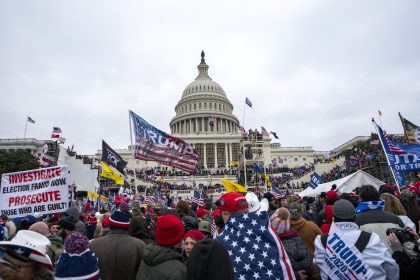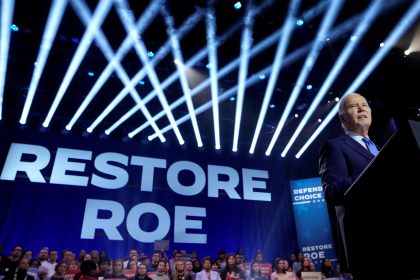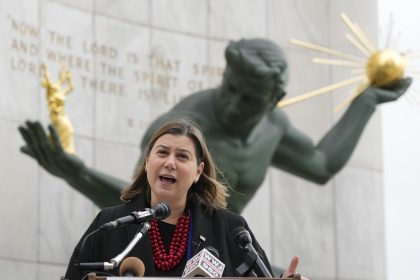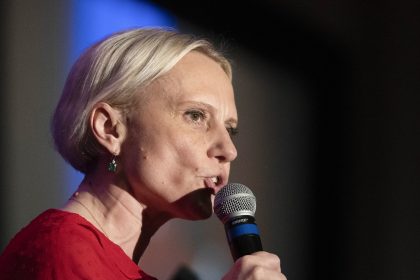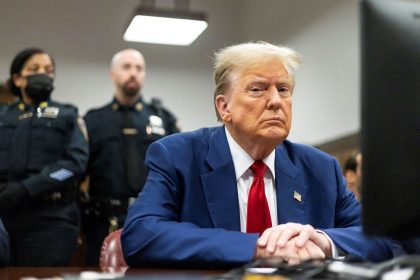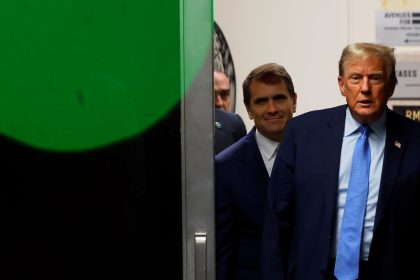The Nevada Primary/Caucus? It’s Complicated
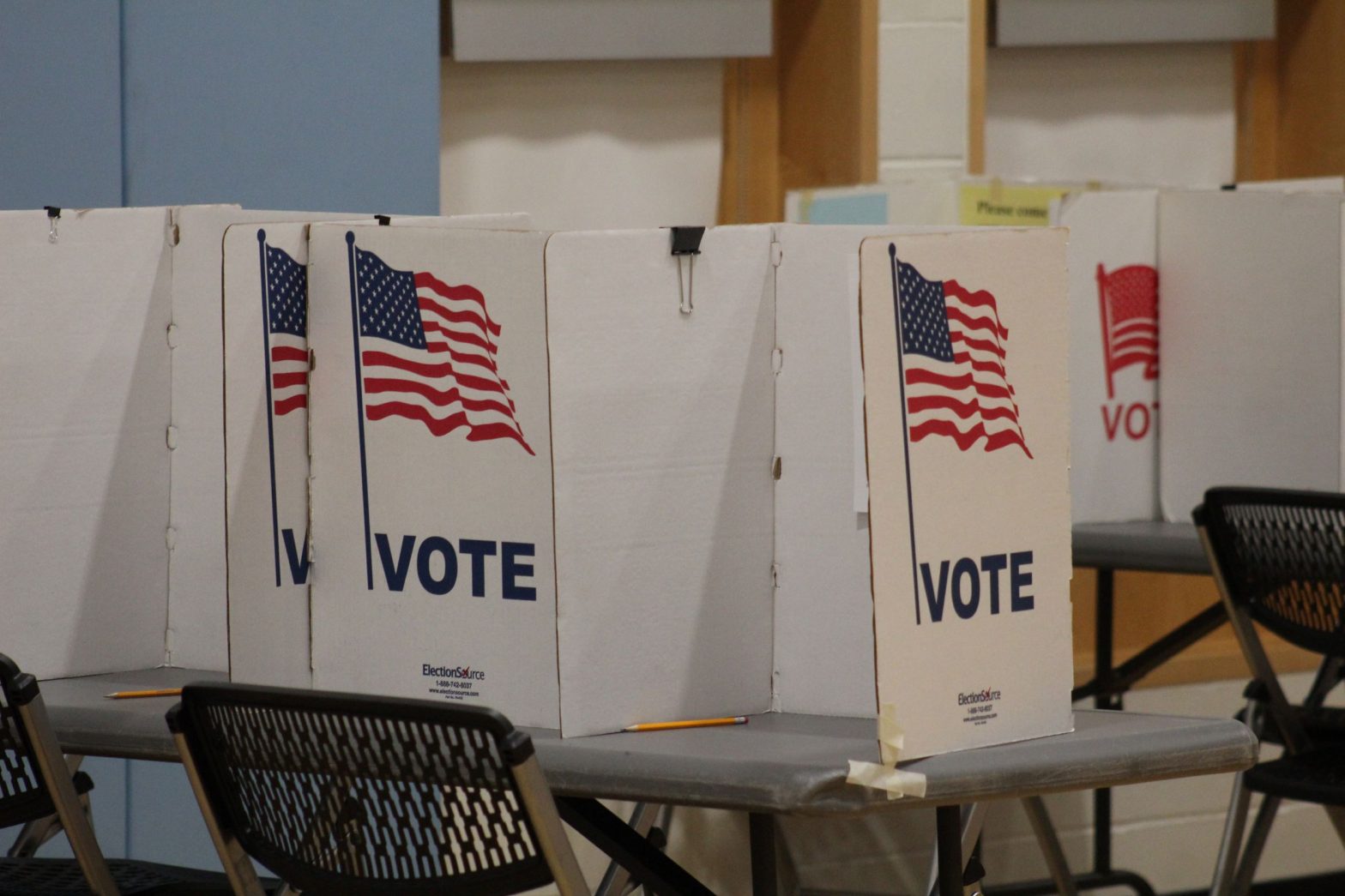
CARSON CITY, Nev. — Next week, Nevada voters will have the chance to vote in two primaries and a caucus, but in one of the weird twists of the 2024 presidential nomination process, only two of the contests will distribute delegates.
In an even weirder twist, while both former President Donald Trump and former U.N. ambassador and South Carolina Gov. Nikki Haley will appear on ballots, the last remaining contenders for the GOP nomination won’t be competing head-to-head in the same contests.
What gives?
For those who might not have been paying all that much attention to Nevada politics lately, the explanation for this odd circumstance lies in an almost yearlong legal battle that most pundits say was waged merely to tip the state in the former president’s favor.
As a result of that tussle, Nevada will now hold its Democratic and Republican primaries on Feb. 6, as prescribed by state law, and the Nevada GOP will hold a caucus two days later, on Feb 8.
The law requires the state to hold a primary if two or more candidates from a major party file to run.
In next Tuesday’s contest for the Democrats, a total of 49 delegates are available for distribution. The state Republicans, meanwhile, maintain the primary doesn’t count, and won’t distribute any of their 26 delegates until the caucus.
On top of all this, the state GOP has passed rules allowing candidates only to participate in the caucus or the primary, but not both.
Haley is the most notable candidate on the GOP primary ballot, though former Vice President Mike Pence and South Carolina Sen. Tim Scott will still appear on it, despite having suspended their campaigns.
Rounding out the GOP primary ballot are lesser known names, Heath Fulkerson, of Reno, and John Anthony Castro, a tax preparer who has reportedly been indicted on 33 felony charges of tax fraud, but denies all wrongdoing.
Trump appears on the caucus ballot, as does Florida Gov. Ron DeSantis, who suspended his campaign ahead of the New Hampshire primary.
Currently Trump leads the contest with 32 pledged delegates, while Haley has 17.
As for the caucus, a recent Emerson College poll said Trump holds a 65 percentage point lead over DeSantis, who endorsed Trump as he left the race.
In his victory speech after his 11 percentage point win in New Hampshire, Trump taunted Haley about the upcoming Nevada contests, alluding to the fact that she is not eligible to win any delegates through the primary.
“I did hear Nikki say, ‘It’s off to South Carolina,’ and I do love South Carolina, but she forgot one thing: next week it’s Nevada,” Trump said. “And I’m pleased to announce we just won Nevada, 100%.”
Up until about 1981, Nevada typically held primary elections to choose delegates to the Republican and Democratic national conventions. It then switched to caucuses, and in 2008, the Democratic National Committee elevated the state to first-in-the-West status in an acknowledgement of its bellwether status.
The Republican National Committee soon followed suit, and Nevada was officially cemented as the third major electoral event in the presidential nominating process.
But former Senate Majority Leader Harry Reid, D-Nev., for decades up to his death the political potentate in the state, was troubled by what he saw as barriers to public participation in the caucuses.
Though he had long supported the caucus in Nevada as a way to build up the Democratic Party in the state, he issued a statement following the 2020 caucus saying, “we should make the process of selecting our nominee even more accessible.”
“We’ve made it easier for people to register to vote here in Nevada in recent years and now we should make it easier for people to vote in the presidential contests. That’s why I believe it’s time for the Democratic Party to move to primaries everywhere,” he said.
Inspired in part by Reid’s sentiments, and also by some problems in the reporting of results in the 2020 Democratic caucuses — issues that inspired the campaigns of both Pete Buttigieg and Sen. Bernie Sanders, I-Vt., to seek recounts — the state Legislature passed a bipartisan bill that brought the curtain down on caucuses and reestablished the state-run primary.
In signing it into law, then-Gov. Steve Sisolak, a Democrat, said, “Today, in the great state of Nevada, we are sending a strong message that the Silver State is not only bucking the national trend of infringing on voting rights, but rather we are doing everything we can to expand access to the polls.”
The state’s Republicans were less happy about the change. In May 2023, after the Legislature failed to roll it back, the state party sued, claiming, among other things, that the law violated its First Amendment rights and that the state had overstepped and had become impermissibly involved in the internal workings of the political parties.
Two months later, Judge James Russell refused to block the new primary regime from taking effect, concluding the Nevada GOP was “unlikely to succeed on the merits of its claims.”
At the same time, however, he said the “results of a [presidential preference primary election] are not binding on any major political party.”
That opened the door to the party holding its own caucus. In the meantime, the litigation continued with the state GOP appealing the case to the Nevada Supreme Court.
Michael McDonald, chairman of the Nevada Republican Party, told the Las Vegas Review-Journal newspaper that a caucus would ensure that only registered Republicans were allowed to vote for Republican candidates.
Under the new primary, he said, voters could register or change their registration up to the day of the election, switching from the Democratic to the Republican Party in order to vote in the GOP contest.
“Due to the inability of Nevada Democrats to execute a smooth, efficient caucus, they want to use unaccountable dark money in an attempt to force Republicans to change the way we choose our presidential nominee, and allow out-of-state interests to interfere in the Nevada GOP nominating process,” he said.
Then in early January, the state GOP abruptly dropped its lawsuit, meaning both the primary and the caucus process would go on.
The Nevada Republican Party did not respond to a request for comment from The Well News; the Haley campaign also did not respond to a request for an explanation for staying on the primary ballot.
Cecilia Heston, a spokeswoman for the Nevada Secretary of State’s Office, said there are a number of reasons a candidate might file to run in the primary in spite of the fact they won’t be competing for delegates.
“For instance, our universal mail ballots are going to be sent out to about 500,000 Republicans in Nevada, so while they may not be winning delegates they’re potentially getting name recognition they may not have had here before,” she said.
Though she allowed there could be other reasons, Heston declined to elaborate.
“You should ask them, because I’d just be hypothesizing about a candidate’s campaign,” she said.
As for the elections themselves, Heston said Nevada is going to run the primaries the same way they’ve run primaries in the past: holding the vote, canvassing the results and reporting them to the parties “before the 10th day after the election.”
“The Democratic Party has decided that they’re going to allocate their delegates by relying on the results of the primary; and the GOP has decided they’re not, but that’s okay. It’s solely up to them and at their discretion,” she said.
For now, the secretary of state’s office is deep into voter education mode and, now that the primary ballot has gone out, answering questions from concerned or conspiracy-minded voters asking why former President Donald Trump is not on it.
A number of voters have also been asking whether they can participate in both the primary and the caucus.
The answer is yes they can. Unlike Republican candidates who had to decide whether to participate in either the primary or the caucus, GOP voters have the option of voting next Tuesday and caucusing the following Thursday.
Nevada Gov. Joe Lombardo has said he plans to do just that, caucusing for Trump in the party’s closed contest, and also voting for “none of the above” in the state-run primary.
To participate in the caucuses, voters needed to have registered as a Republican by Jan. 8.
And, as already mentioned, state-run primaries are closed, meaning only party members get a ballot. But state law allows individuals to change their party registration the day of any given election.
Dan can be reached at [email protected] and @DanMcCue










